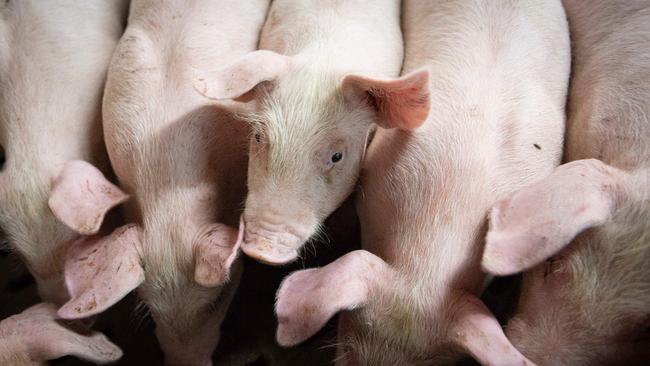
Chinese love pork and the nation is home to about half the world’s pig population.
China does not have enough arable land to grow sufficient soybeans, corn or other protein sources to feed its pig population. Traditionally, American farmers have provided most of the soybeans and corn that China required, although in recent years Brazil and Argentina have taken market share as China diversified its imports.
Nevertheless, both Chinese President Xi Jinping and US President Donald Trump know that they both share a common support pillar — farmers. For Xi it’s pork growers (and consumers) and for Trump it’s grain growers. It’s ironic that at the base of the trade war is artificial intelligence and database superiority but a key segment of those on the war’s front line are farmers.
Early in the war, Xi imposed a tariff on American grain. That spurred Chinese farmers to source more grain from Brazil and to look for other sources of protein, including growing more in China. The US is the largest corn grower in the world and US corn shipments fell to a 19-month low in June and they are unlikely to have done much better in July. This accelerated the rate of decline of corn exports to China seen over the last year.
By contrast, US soybean growers reduced their prices to hold market share and soybean exports to China in July were at record levels and there is a big backlog of orders.
As we all know, US-China trade relations have soured further since Donald Trump last week vowed to put tariffs on more Chinese goods beginning in September, partially fuelled by his claim that China had not fulfilled promises to buy large volumes of US farm products. Trump was focusing on corn rather than soybeans.
This week, China’s Commerce Ministry responded by announcing that Chinese companies will stop buying US agricultural products. This will devastate the US soybean growers and, to a lesser extent, those that grow corn. It is a major blow to Trump — probably the worst blow Xi has landed on the US President. But it’s also high risk for Xi, as he has been told by his advisers that Chinese pig farmers have recently been using more soy than usual. While they are already planning other sources of protein for their pigs and soy imports from Brazil can be increased, the cost of pork will rise which is a danger sign.
American soy growers are considering shipping their product to Brazil so it will arrive in China from South America. That will increase the cost by about 10 per cent. But will Xi turn a blind eye to such a tactic? No one knows.
Goldman Sachs says that there will be no easing of the trade war until after the 2020 presidential election. But if there is to be an easing it will be because one or both of the presidents has misjudged the impact of the latest moves on their farmers and in the case of China on the consumers of pork who dominate the population.
Just as the farmers in both countries find themselves on the front line in the trade war, so share investors are in a similar situation.
We will have to wait a few days before we discover whether the “Tuesday” rally on Wall Street was an indicator that we are in a correction or whether it was a so called “dead cat bounce’. Part of the problem in assessing swings in share markets is that the trends are multiplied by computer activated trading. My guess at the start of this week was that the big fall on Monday (New York time) was a correction. That will be tested in the next few days.
And as the smoke of battle intensifies, we have a reminder that music can unite the world. China’s Tencent Holdings Ltd is in talks to buy up to 20 per cent of Universal Music Group from France’s Vivendi valuing the holder of the music label of Lady Gaga, Ariana Grande and the Beatles at around $US34bn. The first step would be a 10 per cent purchase. Universal is the world’s biggest music label ahead of Sony Music Entertainment and Warner Music.
Tencent is a gatekeeper to China’s growing but tightly controlled music market but wants to expand globally. Universal wants to expand into China.
Global music-streaming retail sales are expected to more than double to $US45.3bn by 2026. It beats pig farming.





As the world focuses on currency levels and the wild swings in shares, there’s a sleeper issue at the heart of the current round of the US-China trade war — China’s 440 million pigs.